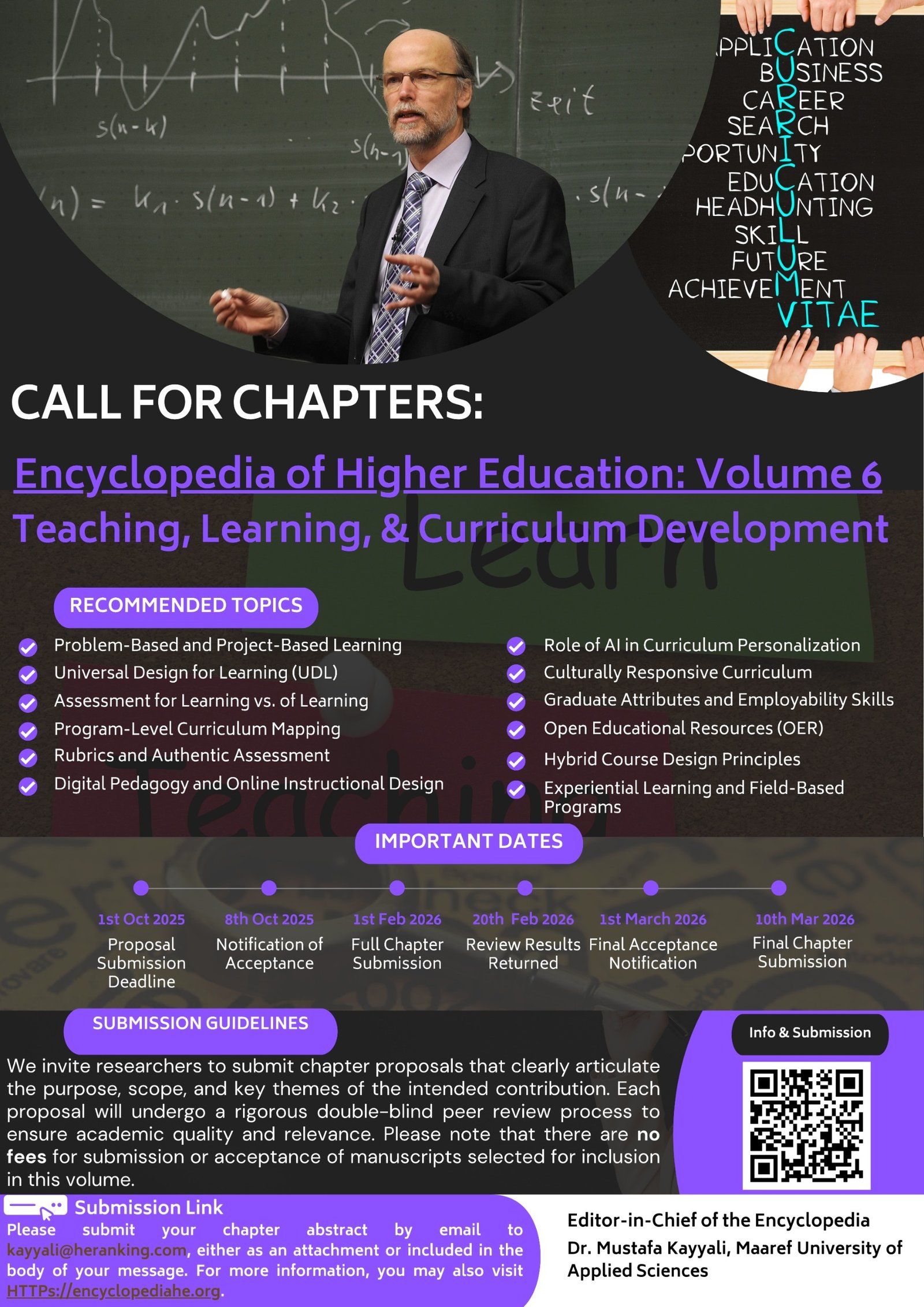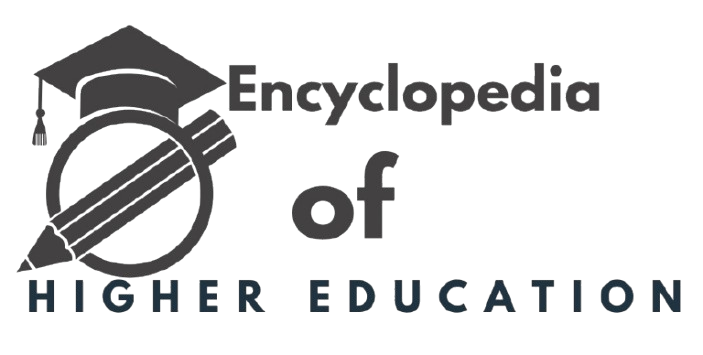Volume 6. Teaching, Learning, and Curriculum Development
Overview
This volume offers a comprehensive exploration of how teaching, learning, and curriculum design are being redefined in contemporary higher education. It bridges pedagogical theory with classroom practice, spotlighting innovative models such as project-based learning, Universal Design for Learning (UDL), experiential and community-based education, and curriculum co-creation. The chapters unpack evolving strategies like hybrid instruction, culturally responsive curriculum, learning analytics, and mobile learning to reflect the transformation brought by digital tools, student diversity, and global shifts in labor markets. Also central to the volume are discussions on curriculum mapping, ethics in assessment, AI-driven personalization, and pedagogical tensions across disciplines. Drawing from diverse contexts, it addresses how educators can shape meaningful, inclusive, and future-ready learning experiences for students in a rapidly changing world.
Importance and Impact
At the heart of higher education lies the act of learning—and how we design, deliver, and evaluate that process defines our impact as educators and institutions. This volume captures the critical shift from content transmission to active knowledge construction, where students are not just recipients of information but co-creators of understanding. It highlights the moral, cultural, and technological complexities that educators face, including the ethical dilemmas of remote surveillance, AI-driven grading, and the challenge of teaching in politically sensitive or divided societies. By exploring both proven and emerging approaches, this volume equips faculty, administrators, and policymakers with the tools to foster inclusive classrooms, critical thinking, and lifelong learning competencies. Its insights are especially vital as higher education navigates demands for relevance, equity, and adaptability in an uncertain future.
Submission Guidelines
Word Count: 5,000 to 6,000 words
Each chapter should be between 5,000 and 6,000 words, including references. This length allows contributors to develop their argument with sufficient depth while remaining accessible to a global readership.
Language: English
All submissions must be written in clear, academic English. Contributors are encouraged to use inclusive language and ensure clarity for an international audience.
Citation Style: APA (7th edition preferred)
Please follow APA Style, 7th edition, for all in-text citations, reference lists, headings, and formatting. Consistency in referencing ensures academic integrity and ease of cross-referencing.
References: At least 80% published after 2021
To ensure the relevance and timeliness of each chapter, at least 80% of cited sources should be published from 2021 onward. This helps maintain the encyclopedia’s credibility and reflects current research and policy discussions.
File Format: Microsoft Word (.docx)
Submissions must be uploaded in Microsoft Word format (.docx only). This format allows for easier editing, formatting, and review throughout the publication process.
Interested in Contributing?
Researchers and authors who wish to participate in the Encyclopedia of Higher Education project are invited to send their abstract, chapter idea, or full submission directly to: kayyali@heranking.com
Alternatively, you may fill out the following form to express your interest and submit your proposal.

Recommended Topics for Contribution
Authors are welcome to explore any of the following themes—or propose their own original focus aligned with the volume’s scope:
1- Constructivist Learning Theories in Practice
2- Problem-Based and Project-Based Learning
3- Universal Design for Learning (UDL)
4- Assessment for Learning vs. of Learning
5- Program-Level Curriculum Mapping
6- Rubrics and Authentic Assessment
7- Digital Pedagogy and Online Instructional Design
8- Role of AI in Curriculum Personalization
9- Culturally Responsive Curriculum
10- Graduate Attributes and Employability Skills
11- Open Educational Resources (OER)
12- Experiential Learning and Field-Based Programs
13- Capstone Projects and Signature Assignments
14- Teaching Portfolios and Reflective Practice
15- Faculty-Led Curriculum Reform Initiatives
16- Learning Analytics for Instructional Improvement
17- Hybrid Course Design Principles
18- Ethics in Student Assessment
19- Cross-Cultural Learning Design
20- Community-Based and Service Learning Models
21- Mobile Learning Strategies
22- Curriculum Co-Creation with Students
23- Learning Spaces and Physical Infrastructure
24- Pedagogical Theories in STEM vs. Humanities
25- Teaching Controversial Topics
26- Building Metacognitive Skills in Learners
27- Remote Proctoring and Surveillance Concerns
28- Embedding Global Citizenship in Curriculum
29- Faculty Resistance to Curriculum Change
30- Philosophical Underpinnings of Pedagogical Approaches
